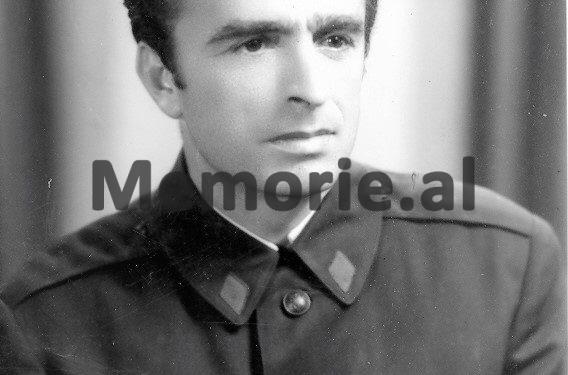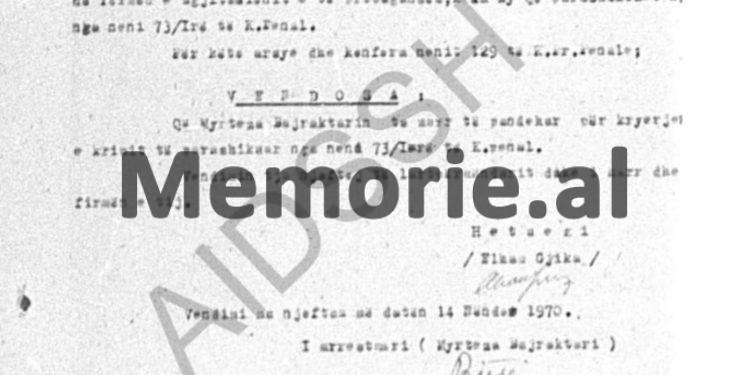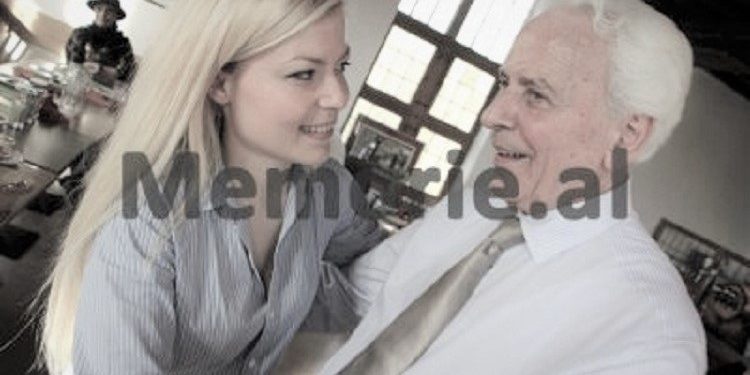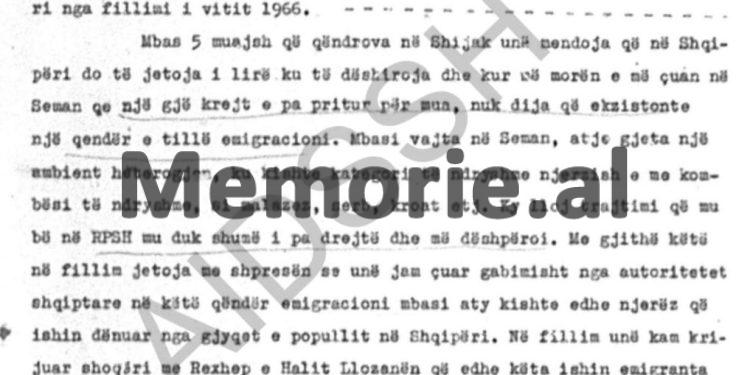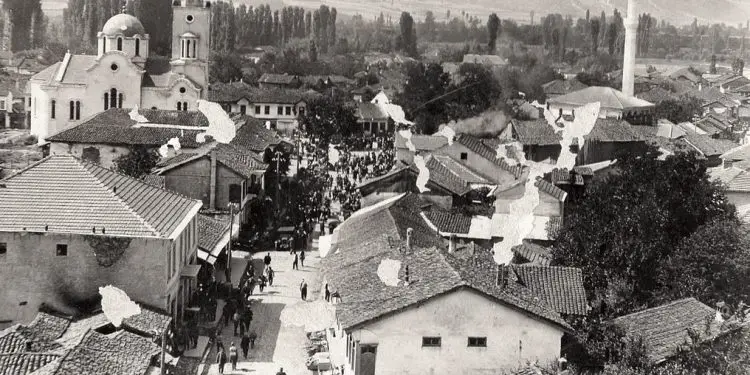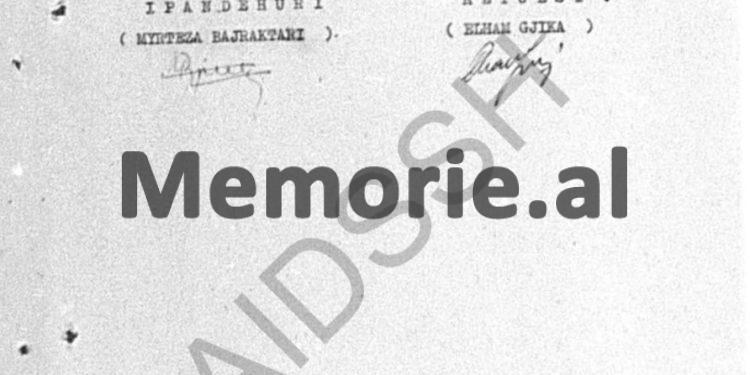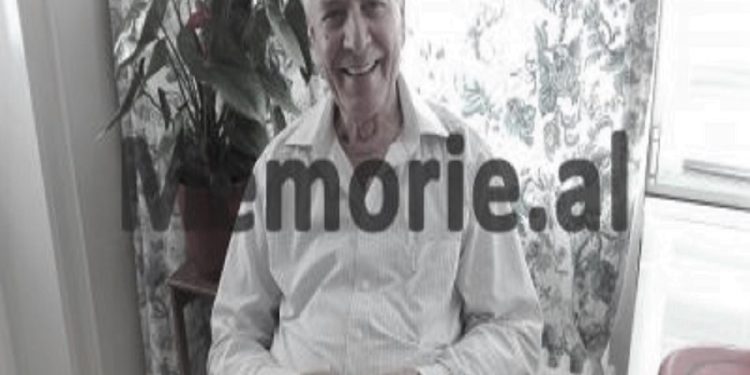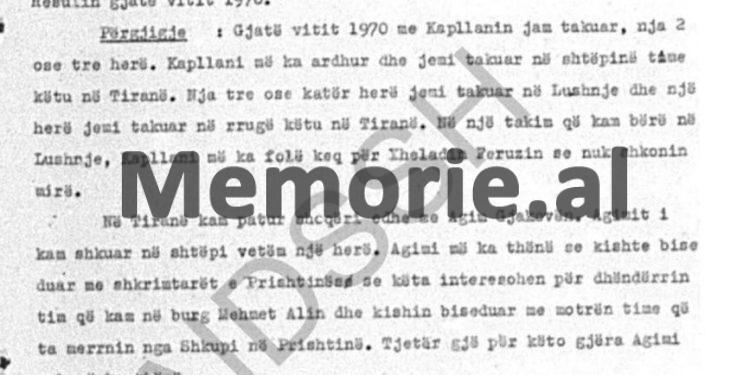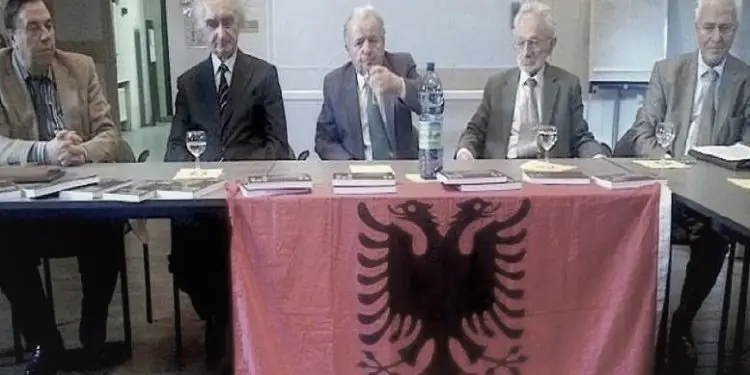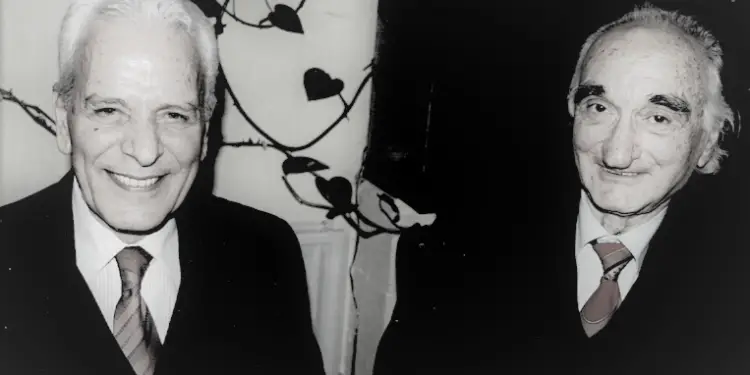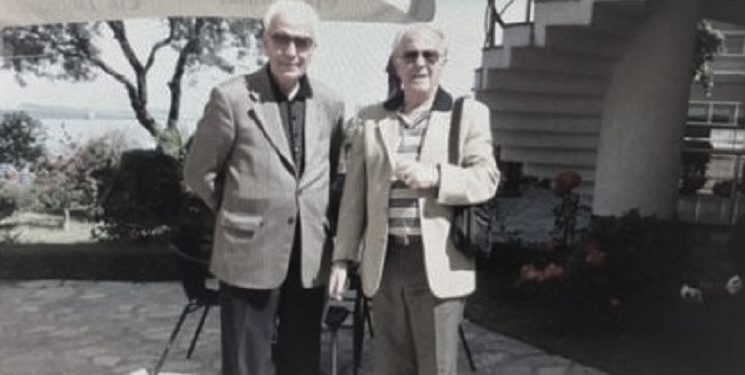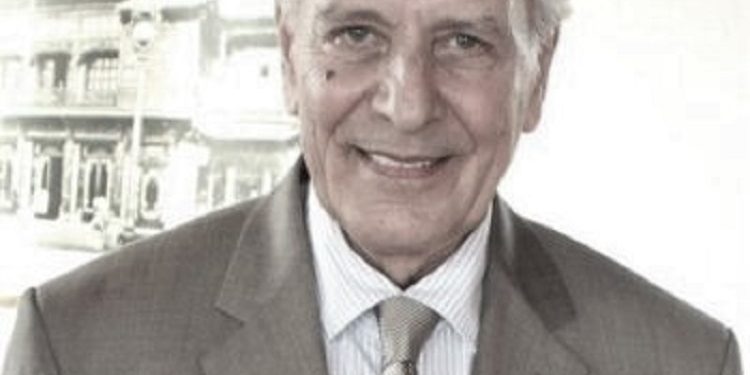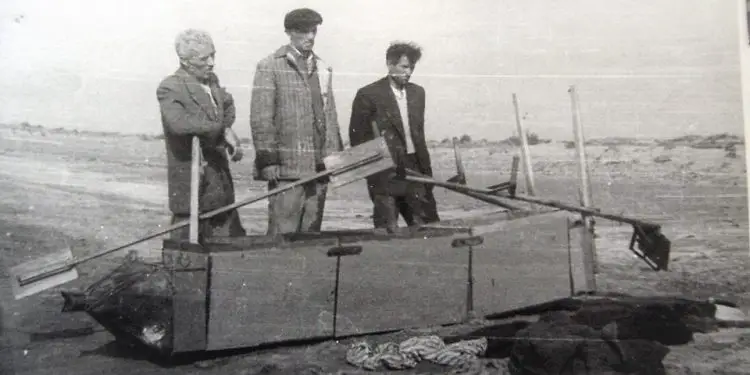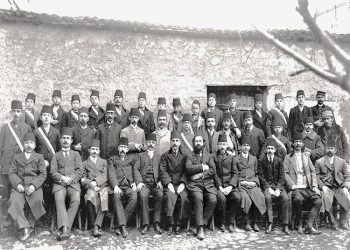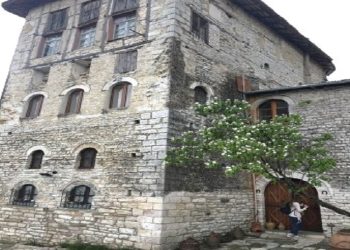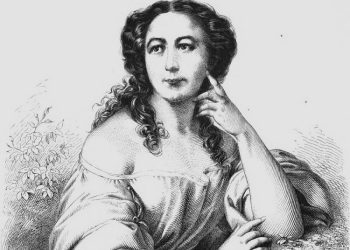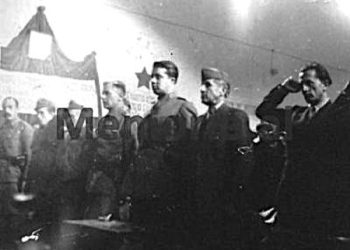Dashnor Kaloçi
Part thirteen
Memorie.al/ publishes some archival documents issued by the institution of the Authority for Information of Former State Security Files, where is the voluminous file (forms, investigative and judicial), of Myrteza Bajraktari originating from Gostivar, who after finishing school high school in the city of Tetovo, in 1952, began his higher studies at the University of Skopje, in the branch of Philosophy, where in addition to teaching he was employed as a journalist in the newspaper “Flaka e Vllaznimit” published in Skopje, from where he was fired soon after, he published an article where he was openly against the displacement of Yugoslav Albanians to Turkey and as a result, he was appointed as a teacher in the 7-year school “Shaban Zeneli” in Kumanovo. Myrtezai was arrested by the UDB in 1952, after he was part of a secret organization called the ‘Albanian National-Democratic Organization’, and he was sentenced to seven years in political prison, which he served in the Nis prison and Idrizovo. Escape from Yugoslavia and coming to Albania, where after staying for some time in the internment camp in Seman of Fier, he was given the right to high school, graduating from the University of Tirana in Language and Literature, but after refusing the appointment in the city of Berat, in 1971, he was arrested and sentenced to seven years in political prison, on charges of “agitation and propaganda”. Release from prison and leaving without work until the collapse of the communist regime and his appointment as Consul General of Albania in Switzerland, until 1993, and then his election as Honorary President of the Albanian League in the World, for the countries of Benelux, where he worked for the cause of Kosovo, until he passed away on December 11, 2020. The entire complete file of Myrteza Bajraktari, with the names of officials and officers of the State Security, the nicknames of collaborators, “colleagues” and The “compatriots” who followed and monitored him, the provocateurs in the investigation cells, the witnesses who appeared in court, the letters sent to Enver Hoxha and the high official instances where he demanded his innocence, etc., etc., are published for the first time by Memorie .al
Continued from the previous issue
The document with the decision of the investigator of the Ministry of Internal Affairs, Elham Gjika, on the taking of the defendant, Myrteza Bajraktari
DECISION
ON DEFENDANT TAKING
In Tirana on November 14, 1970.
I, Elham Gjika, an investigator at the Ministry of Internal Affairs, after studying the materials in charge of the arrested Myrteza Bajraktari,
Findings:
The defendant was arrested on November 12, 1970, after carrying out hostile activities against the popular power in the form of agitation and propaganda, a crime provided by Article 73/1 of the Criminal Code.
For this reason, and in accordance with Article 129 of the Criminal Code,
Decided:
To take Myrteza Bajraktari as a defendant for committing the crime provided by Article 73/1 of the Criminal Code.
I will announce the decision to the above-mentioned, taking his signature.
Investigator
Elham Gjika
The decision was announced on November 14, 1970
The arrestee
Myrteza Bajraktari
The document with the minutes of the interrogation of the defendant Myrteza Bajraktari, by the investigator of the Ministry of Internal Affairs, Elham Gjika
VERBAL PROCESS
In Tirana, on 22/11/1970
I, Elham Gjika, an investigator at the Ministry of Internal Affairs, interrogated the defendant, Myrteza Bjaraktari.
Question: Tell us, how many times you met Kapllan Resuli, during 1970.
Answer: During 1970, I met Kapllani, a couple of times, or three times. Kapllani came to me and we met at my house here in Tirana. About three or four times, we met in Lushnje and once we met on the street here in Tirana. In a meeting I had in Lushnje, Kapllani spoke badly to me about Xheladin Feruzi that they were not doing well.
In Tirana, I also had friendship with Agim Gjakova. I only went home at dawn once. Agimi told me that he had talked to the writers in Prishtina, that they were interested in my son-in-law, Mehmet Alia, who was in prison, and that they had talked to my sister to take him from Skopje to Prishtina. Other thing, about these things, Dawn did not tell me.
In various meetings, I remember that in one case, Kapllani spoke ill of me about Agim Gjakova, as a careerist who is writing in Tosk, and to please the people of the government.
Regarding his writings, Kapllani told me that: they do not want to publish them for me, they have created a front against me. This happened on one occasion when he was criticized for a story he had done.
In one case, I talked to Gani Demiri, that the issue of the situation that is today between Albania and Kosovo, is opportune and very favorable for the development of Kosovo, especially for the issue of school.
We have said that this is as a result of the work of the Albanian Labor Party.
I have not talked to Kapallani recently about the Kosovo issue. We have talked about this issue with each other before.
I read the minutes and my statements are spelled correctly and I signed it.
Defendant Investigator
Myrteza Bajraktari Elham Gjika
The document with the minutes of the interrogation of the defendant Myrteza Bajraktari, by the investigator of the Ministry of Internal Affairs, Elham Gjika
VERBAL PROCESS
In Tirana, on 1/12/1970
I, Elham Gjika, an investigator at the Ministry of Internal Affairs, interrogated the defendant, Myrteza Bjaraktari.
Question: Can you give us an explanation about the accusation?
Answer: I, Myrtezai, fled Yugoslavia to Albania in September 1962. After coming to Albania, I stayed in Shijak for about 5 months and then they took me to Seman in Fier, to the emigration center, where I stayed until the beginning of 1966.
After five months of staying in Shijak, I thought that in Albania, I would live free, wherever I wanted, and when I was taken to Seman, it was a complete surprise for me, I did not know that there was a center of such immigration.
After I went to Seman, there I found a heterogeneous environment, where there were different categories of people, with different nationalities, such as Montenegrins, Serbs, Croats, etc.
This kind of treatment that was done to me in the People’s Republic of Albania seemed very unfair to me and disappointed me. However, at first I lived with the hope that I was mistakenly taken by the Albanian authorities to this immigration center, as there were also people who had been convicted by the trials of the people in Albania.
In the beginning, I made friends with Rexhep and Halit Lazana, who were also Kosovar immigrants. From these, I learned that they stayed in this immigration center 3-4 years ago. This, again, seems unfair to you here in Albania, with immigrants.
This, even after these Llazana brothers, told me that they had come to Albania with a passport and although they had come this way, they still took them to this immigration center, where they stayed for so long.
These two brothers told me not to despair, that soon, I would be released from Seman. I told them why they kept them so long in Seman and they told me: that we both have traveled through Western countries and for this, the Albanian authorities may suspect us.
When I was in Seman, the Albanian authorities returned to Yugoslavia, among others, my friend, Bektash Ismaili, with whom I had come to Albania and had not prayed for his return.
In addition to Bektashi, I had learned that the Albanian authorities were returning to Yugoslavia other emigrants who had not prayed for their return. This attitude of the Albanian authorities seemed unfair to me and on this basis, I was afraid that I would be extradited to Yugoslavia.
Over time, there in Seman, I made friends with Alush Bytyçi, an emigrant whose surname is Myftari, I do not remember the name, but today he lives in Shkodra and with the Llazana brothers. At that time, some of my friends were released from Semani, they also got citizenship.
As early as 1963, I applied for citizenship, but I was rejected. After my former friends, Alush Bytyiçi and the Llazana brothers, left Seman, Ymer Kelmendi and Skënder Kabashi, who had been students in Elbasan, came to Seman and were expelled for spreading pornographic material.
For this, Ymeri was excluded, while Skënderi, I do not remember why. From that time on, I started sending letters from Lushnja to Kapllan Resuli, in which he told me to stay, not to get upset and not to allow Kosovar boys to pray for my return to Yugoslavia. These messages of Kapllani, I tried to implement in Seman.
In time, some of the emigrants were released from Seman, some returned to Yugoslavia, and by 1965, few remained in Seman, who, too, had prayed to return to Yugoslavia.
During this time, they became even more dissatisfied with this attitude towards me, even when someone, in these circumstances, asked me for my opinion, if he had to pray to return to Yugoslavia, I told him that; he did it and I did it after seeing that everyone was returning to Yugoslavia.
Specifically I do not remember who I told in those days to pray for a return to Yugoslavia. I came to the conclusion that here in Albania, for me; there is no place, since I remained a suspicious person, until I was held in Seman.
So, from the end of 1968, I myself, made a request to go to Turkey, to my uncle, who I have there, and the other one I have in Turkey./Memorie.al
Defendant Investigator
Myrteza Bajraktari Elham Gjika
The next issue follows




